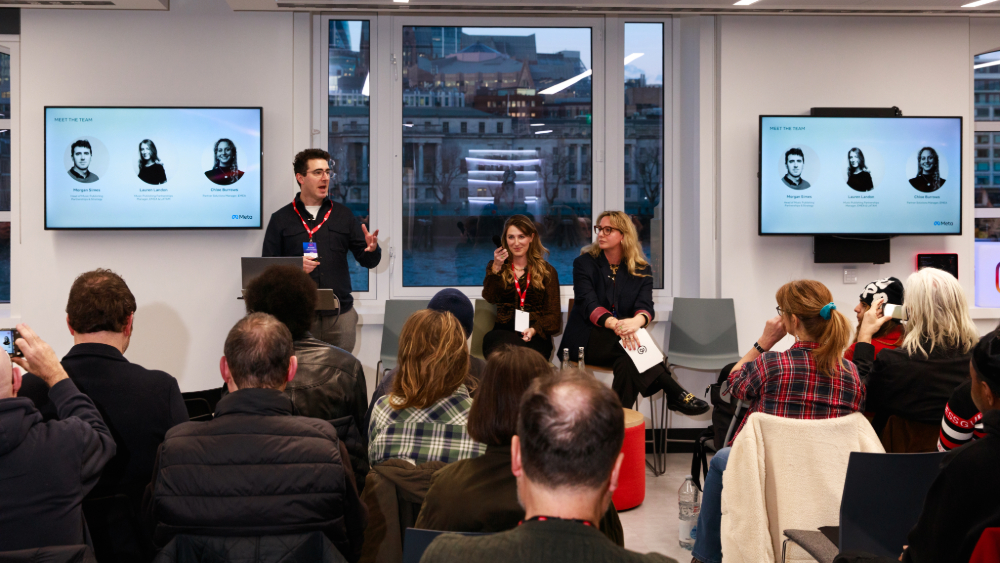If you want a music career that lasts, you should start thinking beyond the thrill of writing a new song or playing your next show. Talent will get your foot in the door, but how you show up every day — including the way you manage yourself, your work and those who play a part in your career — determines whether that door stays open.
As someone who has managed dozens of artists and worked with hundreds more, I’ve seen similar patterns emerge. The artists who succeed long-term are so often the ones who adopt and master a few key habits early on. The ones who don’t, however, typically find themselves stuck, repeatedly chasing opportunities instead of creating them.
Maintaining these good habits will also stand you in excellent stead when it comes to either being approached by or appointing a manager. If you want your future manager to genuinely invest in your career and stick with you, here’s where to begin.
Develop a strong work ethic
Your manager’s time is precious. They should be negotiating deals, networking and helping open doors for you, not chasing you to respond to their emails, messages or approval requests. A common mistake I’ve seen is artists assuming managers are there to function as their personal assistant — they are not.
Maintaining a strong personal work ethic, then, is key. This means taking responsibility for your role in your team by responding promptly, keeping your promises and attending scheduled meetings, whether in person or virtually. Block out some time away from your important commitments in the studio or on stage to dedicate yourself to fulfilling these tasks — it’ll go a long way.
From my own perspective as a former manager, this is one of the most important habits to get right early on. I’ve seen artists lose momentum not because they lacked talent, but because their team spent more time chasing them for responses than building their career. Consistency, reliability and good communication skills are the simplest qualities that can set the foundation for longevity in music.
'The artists who succeed long-term are so often the ones who adopt and master a few key habits early on.'
Embrace social media as a career-boosting tool
This might make some eyes roll, but social media is no longer optional if you want to make yourself visible to the wider industry. In the before-times, you'd have to go out into the world and ask people in person for their email addresses in return for, say, a tote bag. Trust me when I say it is a much nicer job reaching thousands of listeners around the world online (and for free) than it is hauling hundreds of tote bags and clipboards in the pouring rain, as I did at The Great Escape in Brighton 15 years ago.
Before you say, ‘But I’m a musician, not a marketer,’ you need to remember that your manager is not also your social media manager. They’re not there to post your content or build an online presence for you — that’s your job. Posting consistently demonstrates both your professionalism and that aforementioned work ethic. It shows managers and industry teams that you understand the tools at your disposal and are committed to building your career, rather than just waiting for opportunities to fall into your lap.
You don’t even need to post on socials every day or create flashy content. A few authentic, thoughtful posts a week will start to generate momentum: this can include behind-the-scenes shots, studio updates, snippets of songwriting, voiceovers, carousels and live performance clips. These all proof that you’re serious about your craft and willing to put in the work. Artists who master social media early make themselves far more attractive to managers, promoters and collaborators, while also crossing a mental barrier that separates those who are truly invested in their career from those who are not.
Handle the business side of things like a pro
Here’s where so many artists fall short — and it’s a trap that can set you back months, if not years, of progress. A sustainable music career is built on administrative discipline: registering your music, reporting your setlists and tracking co-writing splits being just three key examples.
This is particularly important when onboarding a new manager. If you’ve already done the basic admin set-up, they can focus on driving your project(s) forward. As a manager, I spent months of my life going through and organising years’ worth of old songwriting splits because nothing had been documented at the time. Co-writers hadn’t signed off, prior splits were messy or missing, and it was impossible to do anything with the back catalogue until everything had been formally approved. This meant that, because the admin hadn't already been done, hundreds of tracks had been sitting there for years, gathering dust.
During that time, I couldn’t focus on releasing music, pitching to playlist curators or managing tours. Every day was spent cleaning up mistakes and oversights that could have been avoided. That’s months of career momentum lost, and all because basic administrative habits weren’t in place. If you get this right from the start, it demonstrates responsibility and respect for your career. It signals to managers and teams that you’re serious, capable and committed. It also protects your income: missing registrations, unclaimed royalties or disputed splits can cost you thousands. Small, regular actions now can save major headaches later.
'A sustainable music career is built on administrative discipline, including registering your music, reporting your setlists and tracking co-writing splits.'
Why do these habits matter?
A strong work ethic, consistent social media approach and disciplined business practices aren’t glamorous habits. You won’t get an immediate thrill from checking them off your list, but they help free up your manager’s energy to focus instead on nurturing growth, creating trust and credibility, and setting you apart in an industry full of talented artists who underestimate the value of structure.
These habits aren’t just about making your manager’s life easier, though — they’re about making your music career sustainable. They create the conditions for longevity, opportunity and consistent growth, allowing you to focus on what matters most: your music and your message.
When I see an artist who is on top of these three areas, I know they’re someone I can invest in long-term. I see how serious they are, and that is a tantalising prospect. I can then focus on securing deals, helping grow their fanbase and build their legacy, rather than getting lost in endless administrative chaos.
Start today — not tomorrow
If you take anything from this piece, make it this: your future manager is looking for someone who shows up every day. Not just to studio sessions or gigs, but to every aspect of their career. If you can master your work ethic, understand social media’s power and handle the business side responsibly, you've demonstrated that you're ready for real opportunities.
So, set aside time every day to respond to emails and messages. Create a posting rhythm on socials that feels achievable. Claim your rights, register your songs and setlists with PRS, and keep your splits organised. These aren’t glamorous tasks, I know, but they're essential if you want to genuinely grow.
When they’re done consistently, the results will speak for themselves. Your future manager will thank you and, more importantly, so will your future self.
You can follow Atlanta Cobb here and visit her Music Industry Mentor website.
.ashx?h=563&w=1000&la=en&hash=12950D195348E2D949403C629AA450D2)




